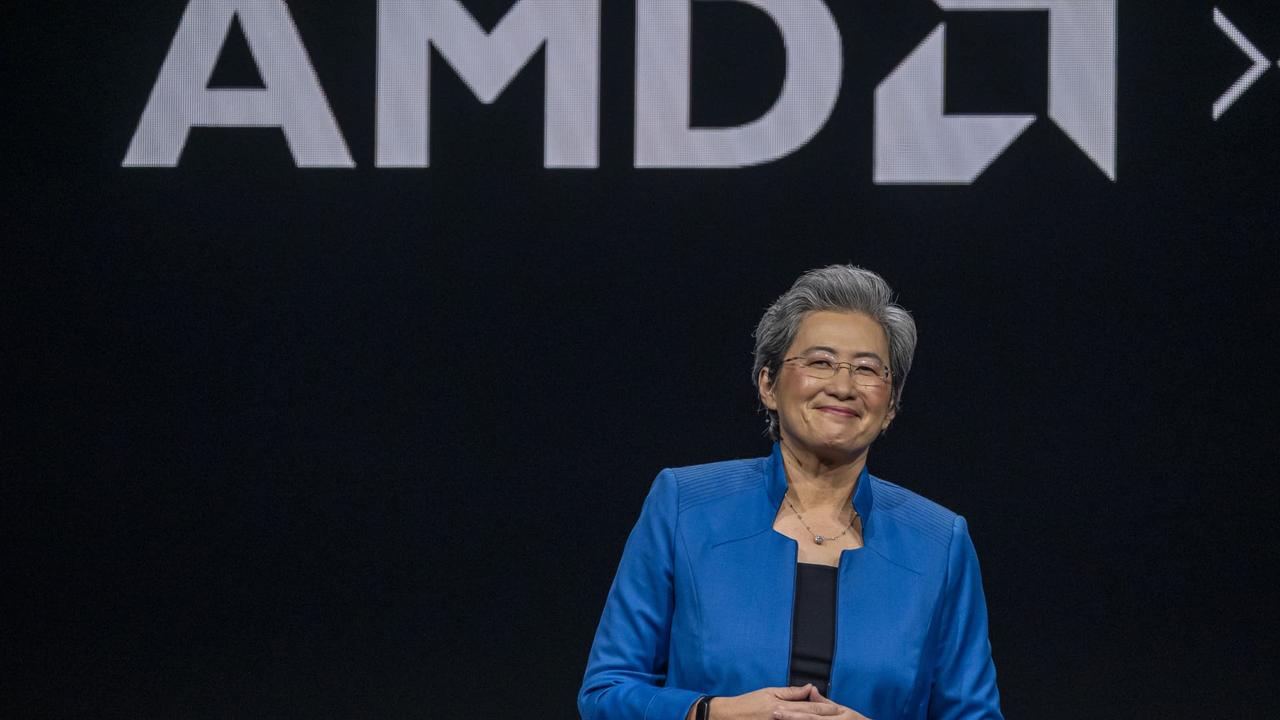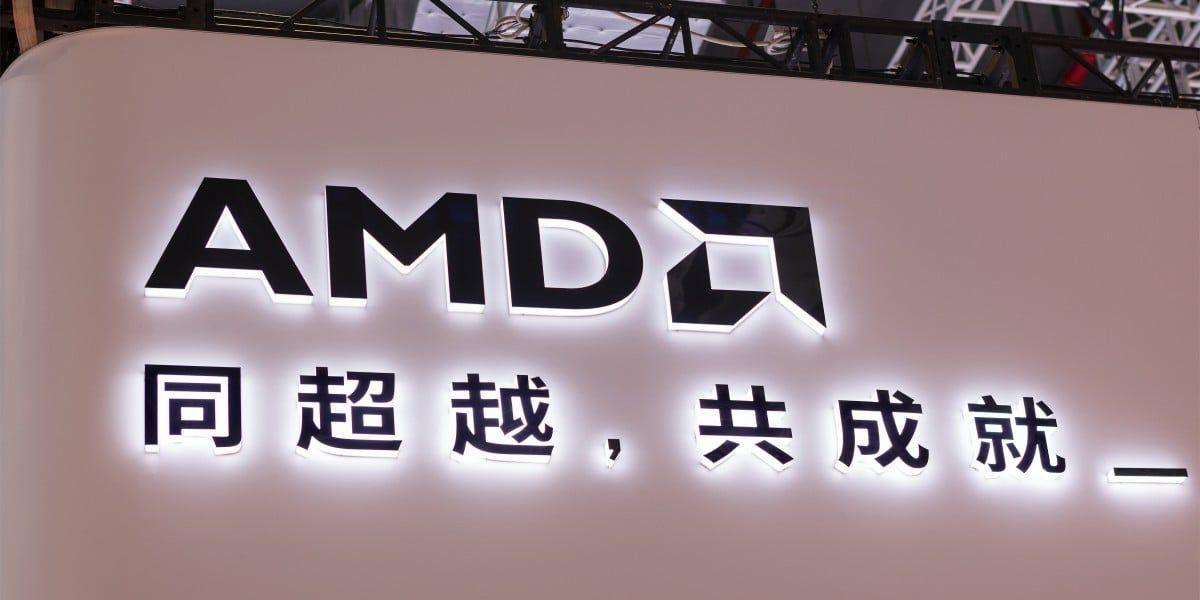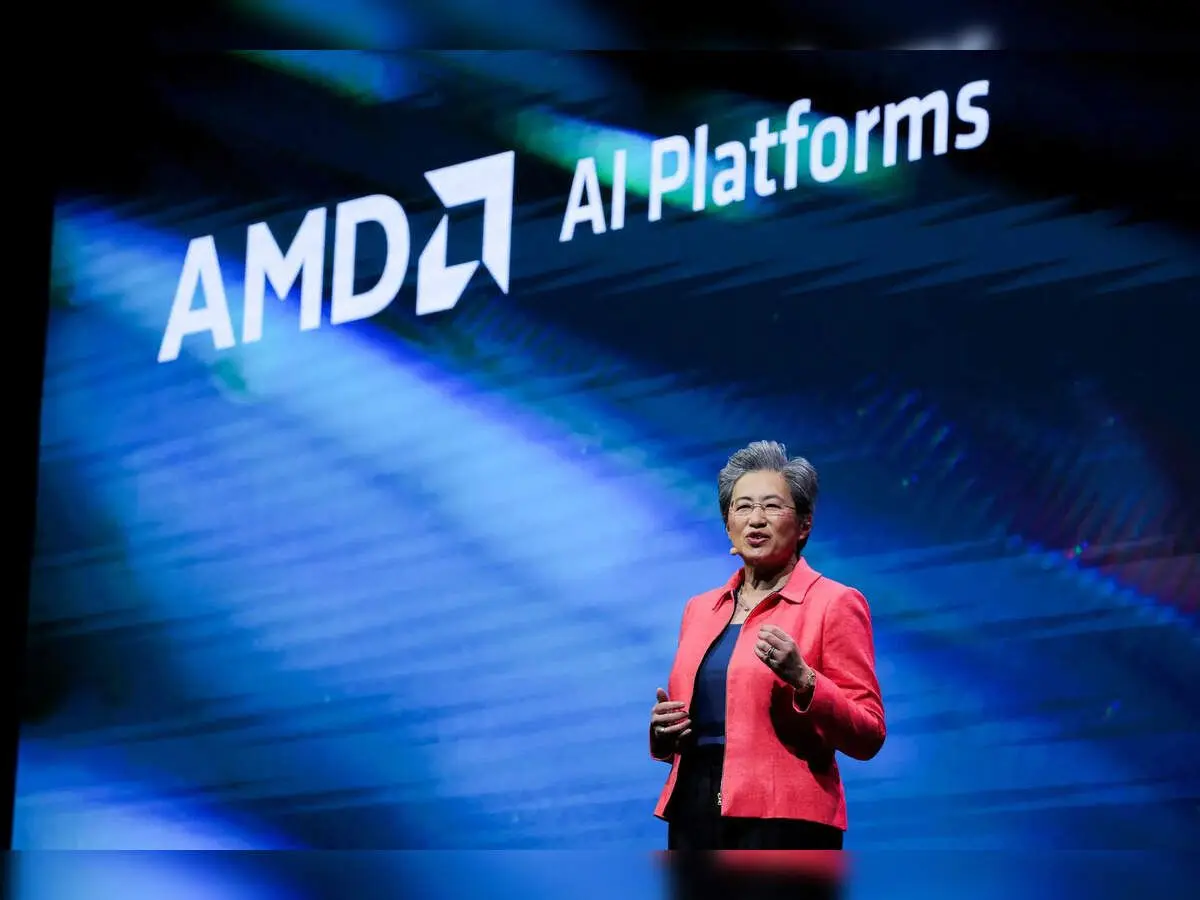AMD and Nvidia Set to Resume AI Chip Sales to China as US Eases Export Restrictions
6 Sources
6 Sources
[1]
Trump lightens chip bans on China, AMD to restart MI308 AI chip sales in the country, joining Nvidia's H20 -- 'We plan to resume shipments as licenses are approved'
"We were recently informed by the Department of Commerce that license applications to export MI308 products to China will be moving forward for review" Just hours after Nvidia announced that the sale of H20 chips in China is set to be approved by Washington, AMD has now confirmed it also plans to resume shipments of its MI308 chips in the country, following a similar shift by the administration. The company confirmed to Tom's Hardware that its license applications to export the chip will be moving forward for review, with the implied understanding that they will be granted. As noted, the news follows the revelation that Nvidia will resume the sale of its H20 chips in China. AMD says it was recently informed by the Department of Commerce that its license applications to export MI308 would be going ahead, and says it "plans to resume shipments as licenses are approved." In a statement, the company further noted, "We applaud the progress made by the Trump Administration in advancing trade negotiations and its commitment to US AI leadership." As with Nvidia, AMD has chafed under restrictions on AI hardware export restrictions put forward by both the previous Biden administration and the current Trump administration. The former introduced a blanket AI diffusion rule; the latter, while reversing AI diffusion, placed specific restrictions on the H20 and MI308 chips. AMD confirmed at the time that the measures could cost it in the region of $800 million in inventory, purchase commitments, and related reserves. While not quite the $5.5 billion write-off suffered by Nvidia, that's enough to hurt anyone's bottom line, making today's shift in policy a welcome break for Team Red. AMD shares have surged by nearly 5% in pre-market trading following the news, a similar jump to Nvidia, as shareholders welcome the development. The overturning of the specific bans on the H20 and MI308 chips marks a seismic policy shift within Washington, following months of protracted back-and-forth. Nvidia CEO Jensen Huang has been a notable detractor of such measures, calling export control a failure and praising President Trump's move to roll back the AI diffusion rule. Huang has repeatedly stated that export controls could limit U.S. power in the advancing world of AI and force countries like China to look inward for innovation and alternative hardware solutions, possibly buoying the country's efforts rather than stalling them. Most recently, he downplayed concerns that China's military could use U.S. AI tech and stated, "Just like we want the world to be built on the American dollar, using the American dollar as the global standard, we want the American tech stack to be the global standard." He reiterated that in order for America to have AI leadership," it needs to make sure the American tech stack is available to markets all over the world."
[2]
AMD cleared to join Nvidia in selling AI chips to China
Waiting for license approval but plans to resume shipments of the MI308 accelerator soon-ish The US government has cleared AMD to resume exporting some accelerators to China. "We were recently informed by the Department of Commerce that license applications to export MI308 products to China will be moving forward for review," AMD told The Register. "We plan to resume shipments as licenses are approved. We applaud the progress made by the Trump Administration in advancing trade negotiations and its commitment to US AI leadership." AMD's clearance came a day after the US government allowed Nvidia to start selling some underpowered accelerators to China. Washington long ago blocked Nvidia, AMD, and other US semiconductor firms from selling their most powerful products to China, citing national security concerns. Tech firms responded by creating less powerful products to sell into China - the MI308 is an example of such offerings as it is considerably less capable than other models in AMD's MI300 Series products. Washington allowed exports of those devices, but in April 2025 changed its policy and banned the sale of even modest accelerators like the MI308. After some intense lobbying from the chip industry, which stood to lose billions in revenue, Washington reversed its decision and will again allow sale of some GPUs to China. AMD's stock price rose nearly seven percent today. Nvidia shares popped five percent, too. The decision to allow export of modestly-specced GPUs reflects recent thawing in China/US relations amid ongoing trade negotiations. Treasury Secretary Scott Bessent on Tuesday reportedly said the two countries are in a "very good place" as the clock counts down to August 12, a day on which a current tariff pause will expire if the two countries don't reach a deal. ®
[3]
AMD to resume MI308 AI chip exports to China
Lisa Su, chair and CEO of Advanced Micro Devices Inc., during the AMD Advancing AI event in San Jose, California, on Dec. 6, 2023. Advanced Micro Devices said Tuesday that it will soon restart shipments of its MI308 artificial intelligence chips to China. The stock climbed 7% following the news. The company said Tuesday that the U.S. Commerce Department plans to resume reviewing its license applications to send the products to the world's second-largest economy. AMD said it plans to start shipments once those are approved. "We applaud the progress made by the Trump administration in advancing trade negotiations and its commitment to US AI leadership," an AMD spokesperson said in a statement to CNBC. The news comes as tensions simmer between the U.S. and China following a heated trade war set off by President Donald Trump's tariff crusade that sent global markets spiraling.
[4]
It's not just Nvidia that's looking to cash in on those loosening US/China chip export restrictions, as AMD also seems close to resuming AI GPU shipments
It's "sell your high-end AI hardware to China" season, and two major players are positioning themselves on the board. Among all the hubbub surrounding Nvidia's announcement that it was filing applications to sell H20 GPUs to China once more, it would be easy to forget that it's not the only company making desirable high-end AI hardware. It looks like AMD wants to get in on the Chinese summer AI GPU bonanza, too. That's according to respected industry analyst Patrick Moorhead, who's posted a statement from AMD confirming that its own license application to export MI308 products to China will be "moving forward for review." Bloomberg also confirms that AMD's MI308 chips may soon be winging their way eastwards, as part of the Trump administration's apparent loosening of restrictions regarding the export of high-powered US chips to China. The deal is said to be part of a newly minted trade agreement between the countries involving rare earth metals and magnets, and comes as something of a surprise given the US government's recent position on China. Reports earlier this year suggested that President Trump was keen on tightening export controls on semiconductors and high-end US chips crossing the border, while in April, his administration hit China with stonkingly high tariffs on a variety of trade goods. Still, the restrictions appear to be easing (at least with the correct license), so it's no surprise that AMD wants to grab the opportunity with both hands. Its Instinct MI300 Series AI accelerators have been fairly well-received, and the MI308 was developed specifically to comply with earlier export controls. Still, much like the gaming market, it's estimated that Nvidia holds the vast majority of the AI GPU market share, up to 92% by some calculations. The opening up of the trade border represents an opportunity to make headway in a market that was otherwise inaccessible, though, so I'd imagine AMD will be keen to hit the ground running as soon as those licenses are cleared.
[5]
AMD says it will restart MI308 sales to China after US review - The Economic Times
Advanced Micro Devices, AMD, plans to resume shipping MI308 chips to China. This follows US approval after a similar decision for Nvidia. The US Commerce Department will review AMD's license applications. Earlier restrictions on MI308 chips were projected to cost AMD $800 million. Nvidia also received approval to ship its H20 AI chip to China.Advanced Micro Devices Inc. said that it plans to restart shipments of its MI308 chips to China after the US said it would approve the sales, following a similar decision on an Nvidia Corp. semiconductor. The US Commerce Department told AMD that license applications for the MI308 products would move forward for review, an AMD spokesman said Tuesday. Allowing the products back into China is a reversal for President Donald Trump's administration, which spent weeks insisting that curbs on chips sales to the Asian country were not up for discussion. The news comes after weeks of thawing ties between the two nations as well as Nvidia Chief Executive Officer Jensen Huang's meeting with Trump last week. AMD said in April that export restrictions on the MI308 chips would cost the company about $800 million. Earlier, Nvidia similarly said the government had agreed to green-light shipments of its H20 AI chip to China, a decision that could add billions to the company's revenue this year. AMD shares rose 5% in premarket trading on Tuesday. The stock closed at $146.24 on Monday and has gained 21% this year.
[6]
After NVIDIA's H20, AMD Gears Up for a Major Win as Its Instinct MI308 AI Accelerator Nears Export Approval for China
It seems that AMD is also readying itself to sell its own "China-compliant" GPU for the domestic market, as the firm is seeking export license approval. The Trump administration has apparently relaxed its stance towards American technology flowing into China. After several restrictions, it is now giving GPU manufacturers new exemptions. Recently, NVIDIA revealed that the company is in line to sell its H20 AI GPUs to China after imminent approval from Washington. Now, AMD representatives have started to confirm that they are also looking for regulatory approval for their Instinct MI308 AI accelerator, which would be a massive win for NVIDIA-AMD in the AI segment. The ease in regulatory measures comes after Jensen's visit to China and the lowering of trade hostilities between the US and China after their trade deal. For AMD in particular, the approval of Instinct MI308 could prove to be massive, given that the company hasn't had much influence over China's AI markets. Given how big of a demand NVIDIA sees for its own solutions, Team Red will definitely look to capitalize on the segment. With this, it is also safe to say that AMD and NVIDIA are now head-to-head in China as well, now that both of them are competing in a heated market. The specifications of the Instinct MI308 aren't confirmed for now; however, based on information available to us, they are likely to be closer to NVIDIA's H20 AI accelerators. It would be interesting to see how the revenue for both NVIDIA and AMD changes once the US administration gives them the green light to sell China-compliant solutions in the market, but for now, we would need to wait and see what happens ahead, especially since the Trump administration is quick to change decisions.
Share
Share
Copy Link
AMD and Nvidia have received approval to resume sales of their AI chips to China, marking a significant shift in US export policy. This development comes as part of ongoing trade negotiations between the US and China, potentially reshaping the global AI hardware market.
US Eases AI Chip Export Restrictions
In a significant policy shift, the US government has decided to ease restrictions on the export of AI chips to China. This move allows major tech companies like AMD and Nvidia to resume sales of certain AI accelerators to the Chinese market
1
2
3
.AMD's MI308 Chip Approval

Source: Wccftech
AMD has confirmed that the US Department of Commerce will review license applications for exporting its MI308 products to China
1
. The company plans to resume shipments as soon as these licenses are approved2
. This decision comes as a relief to AMD, which had previously estimated potential losses of around $800 million due to the export restrictions1
5
.Nvidia's H20 Chip Clearance
The policy change also benefits Nvidia, which has received approval to sell its H20 AI chip to China
3
5
. This development could significantly boost Nvidia's revenue, given its dominant position in the AI GPU market with an estimated 92% market share4
.Market Response and Financial Impact
The news has been well-received by investors, with AMD's stock price rising by nearly 7% and Nvidia's shares increasing by 5%
2
3
. The ability to tap into the Chinese market again represents a substantial opportunity for both companies to expand their AI hardware sales.Background on Export Restrictions
The US government had previously blocked the sale of high-powered AI chips to China, citing national security concerns
2
. In response, tech companies developed less powerful products like the MI308 and H20 specifically for the Chinese market2
4
. However, in April 2025, even these moderated versions were banned from export2
.Related Stories
Shift in US-China Relations
This policy reversal comes amid ongoing trade negotiations between the US and China
2
5
. Treasury Secretary Scott Bessent has reportedly stated that the two countries are in a "very good place" as they approach the August 12 deadline for a current tariff pause2
.Industry Perspectives

Source: CNBC
Nvidia CEO Jensen Huang has been a vocal critic of export controls, arguing that such measures could limit US influence in the AI sector and potentially drive China to develop alternative solutions
1
. Huang has emphasized the importance of making the "American tech stack" the global standard to maintain US leadership in AI1
.Future Implications

Source: The Register
The decision to allow the export of modestly-specced GPUs to China could have far-reaching implications for the global AI industry. It may help US companies maintain their competitive edge while also potentially influencing the direction of AI development in China
1
4
. As the situation continues to evolve, the tech industry will be closely watching how these policy changes impact the global AI landscape.References
Summarized by
Navi
[2]
Related Stories
Nvidia and AMD to Pay 15% of China AI Chip Sales Revenue to US Government
04 Aug 2025•Business and Economy

NVIDIA and AMD Prepare New AI Chips for China Amid US Export Restrictions
29 May 2025•Technology

AMD confirms it will pay 15% tax to resume AI chip shipments to China under Trump deal
05 Dec 2025•Business and Economy

Recent Highlights
1
Pentagon threatens Anthropic with Defense Production Act over AI military use restrictions
Policy and Regulation

2
Google Gemini 3.1 Pro doubles reasoning score, beats rivals in key AI benchmarks
Technology

3
Anthropic accuses Chinese AI labs of stealing Claude through 24,000 fake accounts
Policy and Regulation





